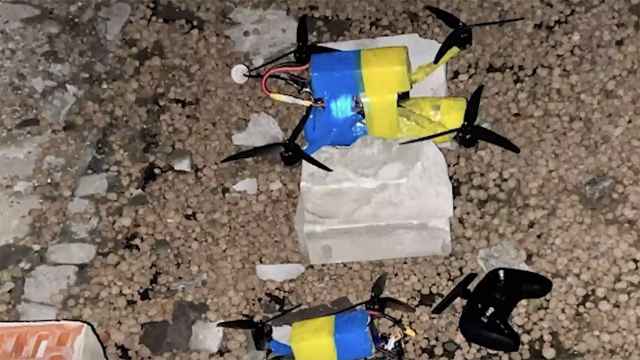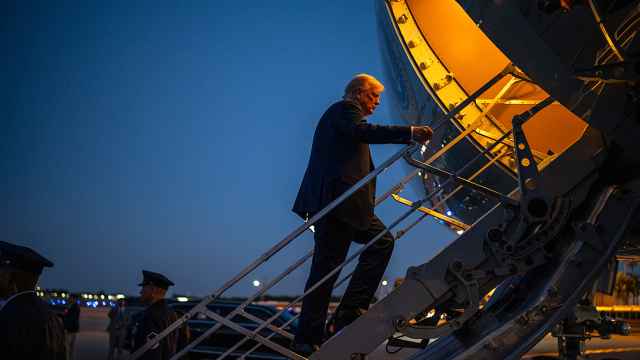Russia's ambassador to Britain said Sunday that diplomatic ties between the two countries were "nearly dead," after a UK strategic review this week branded Moscow an "acute direct threat."
Andrei Kelin also criticised Britain's decision to bolster its nuclear stockpile, arguing the reversal of decades of policy was a violation of various international agreements.
Britain unveiled Tuesday one of the biggest overhauls of security, defence and foreign policy since the Cold War era, which concluded Russia would continue to pose a "full spectrum of threats."
The so-called Integrated Review, crafted over the past year as London recalibrates its post-Brexit foreign policy, also made the surprise announcement to increase the country's nuclear warheads to 260 by 2030.
It painted a pessimistic outlook for relations with Russia, which Britain blames for killing one former KGB spy and the attempted murder of another with a weapons-grade nerve agent in 2018, both on British soil.
London has also blamed Kremlin-linked actors of orchestrating attempts to hack coronavirus research labs and of trying to interfere in its 2019 general election.
Kelin, who took up his posting in the British capital in November 2019, said the UK government had repeatedly rebuffed Russian suggestions to "sit down and talk" about their myriad differences.
In an interview with Britain's LBC radio station aired Sunday, he said the lack of dialogue and accusations against Moscow had effectively "demolished" most of the bilateral relationship.
"We are preserving it mainly in the economic field and cultural field. But as for political field, it is nearly dead," Kelin said.
The top Russian envoy branded Britain's decision to reverse a previous commitment to reduce its nuclear stockpile to 180 warheads, and instead increase it to 260, as "a big surprise."
"You are increasing a number of warheads by 40%," he added.
"This is a violation of the treaty of non-proliferation and many, many other agreements that are saying only a decline or a reduction in the number of nukes."
In response, a British government spokesperson said that "modernising and strengthening the UK's security and nuclear deterrence" was a key part of its integrated review.
"We can best protect ourselves and our NATO allies by the continued operation of a minimum, credible, independent nuclear deterrent," he added.
A Message from The Moscow Times:
Dear readers,
We are facing unprecedented challenges. Russia's Prosecutor General's Office has designated The Moscow Times as an "undesirable" organization, criminalizing our work and putting our staff at risk of prosecution. This follows our earlier unjust labeling as a "foreign agent."
These actions are direct attempts to silence independent journalism in Russia. The authorities claim our work "discredits the decisions of the Russian leadership." We see things differently: we strive to provide accurate, unbiased reporting on Russia.
We, the journalists of The Moscow Times, refuse to be silenced. But to continue our work, we need your help.
Your support, no matter how small, makes a world of difference. If you can, please support us monthly starting from just $2. It's quick to set up, and every contribution makes a significant impact.
By supporting The Moscow Times, you're defending open, independent journalism in the face of repression. Thank you for standing with us.
Remind me later.






